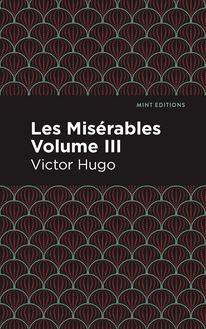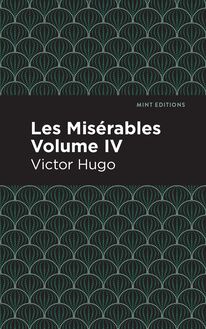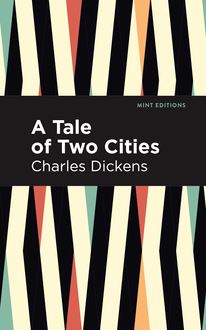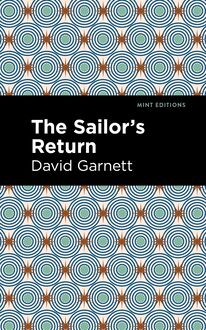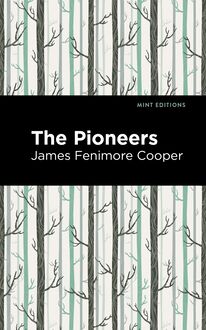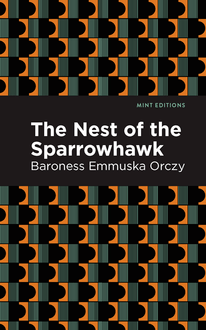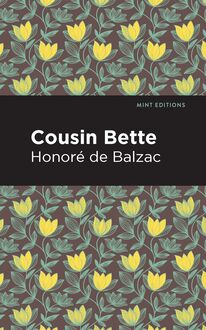-
 Univers
Univers
-
 Ebooks
Ebooks
-
 Livres audio
Livres audio
-
 Presse
Presse
-
 Podcasts
Podcasts
-
 BD
BD
-
 Documents
Documents
-
- Cours
- Révisions
- Ressources pédagogiques
- Sciences de l’éducation
- Manuels scolaires
- Langues
- Travaux de classe
- Annales de BEP
- Etudes supérieures
- Maternelle et primaire
- Fiches de lecture
- Orientation scolaire
- Méthodologie
- Corrigés de devoir
- Annales d’examens et concours
- Annales du bac
- Annales du brevet
- Rapports de stage
La lecture à portée de main
Vous pourrez modifier la taille du texte de cet ouvrage
Découvre YouScribe en t'inscrivant gratuitement
Je m'inscrisDécouvre YouScribe en t'inscrivant gratuitement
Je m'inscrisEn savoir plus
Vous pourrez modifier la taille du texte de cet ouvrage
En savoir plus

Description
Natty Bumppo is a bold young man raised by Native Americans. Nicknamed “Deerslayer” for his courageous attitude that sets him apart from his peers, Natty is adventurous and kind. As a firm believer that all living beings should respect the gifts of nature, Natty despises violence. However, as he comes of age and experiences the antagonistic relationship between Native Americans and white settlers, violence is difficult to avoid. With the help of his best friend, Chingachgook, Natty struggles to confront two white men at the center of the violence. Henry March, a man nearly opposite of Natty in terms of morals and upbringing, collaborates with former pirate “Floating Tom” Hutter to achieve their racist agenda and claim land previously occupied by indigenous people. Intending to scalp and kill as many Native Americans as they can, Hutter and March attack a Native American village, setting a cruel precedent. This attack spurs retribution and a string of kidnappings, ransoms, and rescue missions—all of which Natty finds himself in the middle of. Meanwhile, Natty and Chingachgook meet Tom Hutter’s daughters, Judith and Hetty, who also find themselves stuck in the bloodthirsty environment the elder generation is brewing. Judith is enamored by Natty and attempts to nurture a romance between the two of them. Now, facing tragic deaths, unnecessary violence, and the trials of love, Natty must come of age as he attempts to survive and stop the brutality.
With intricate prose and high adventure, The Deerslayer introduces the pioneer New York setting and protagonists of James Fenimore Cooper’s Leatherstocking Tales series. The Deerslayer depicts the violence that the Europeans inflicted upon Native Americans with a unique perspective, noting the differences between the two races while also hailing the similarities, encouraging unity. Though written much later than the rest of the novels in the series, The Deerslayer prequels the rest, and is chronologically first in the narrative of James Fenimore Cooper’s famous series. Blending action and romance genres, The Deerslayer remains exciting to a modern audience while depicting the struggle of early American life.
This edition of James Fenimore Cooper’s The Deerslayer features a new, eye-catching cover design and is printed in a modern font. With these accommodations, contemporary readers can experience the exceptional and complex origin story of the courageous protagonist of the Leatherstocking Tales.
Sujets
Informations
| Publié par | Mint Editions |
| Date de parution | 05 janvier 2021 |
| Nombre de lectures | 0 |
| EAN13 | 9781513274454 |
| Langue | English |
| Poids de l'ouvrage | 3 Mo |
Informations légales : prix de location à la page 0,0600€. Cette information est donnée uniquement à titre indicatif conformément à la législation en vigueur.
Extrait
The Deerslayer
James Fenimore Cooper
The Deerslayer was first published in 1841.
This edition published by Mint Editions 2021.
ISBN 9781513269450 | E-ISBN 9781513274454
Published by Mint Editions®
minteditionbooks.com
Publishing Director: Jennifer Newens
Design & Production: Rachel Lopez Metzger
Typesetting: Westchester Publishing Services
C ONTENTS I II III IV V VI VII VIII IX X XI XII XIII XIV XV XVI XVII XIII XIX XX XXI XXII XXIII XXIV XXV XXVI XXVII XXVIII XXIX XXX XXXI XXXII
I
“There is a pleasure in the pathless woods,
There is a rapture on the lonely shore.
There is society where none intrudes,
By the deep sea, and music in its roar:
I love not man the less, but nature more,
From these our interviews, in which I steal
From all I may be, or have been before,
To mingle with the universe, and feel
What I can ne’er express, yet cannot all conceal”
—C HILDE H AROLD
O n the human imagination events produce the effects of time. Thus, he who has travelled far and seen much is apt to fancy that he has lived long; and the history that most abounds in important incidents soonest assumes the aspect of antiquity. In no other way can we account for the venerable air that is already gathering around American annals. When the mind reverts to the earliest days of colonial history, the period seems remote and obscure, the thousand changes that thicken along the links of recollections, throwing back the origin of the nation to a day so distant as seemingly to reach the mists of time; and yet four lives of ordinary duration would suffice to transmit, from mouth to mouth, in the form of tradition, all that civilized man has achieved within the limits of the republic. Although New York alone possesses a population materially exceeding that of either of the four smallest kingdoms of Europe, or materially exceeding that of the entire Swiss Confederation, it is little more than two centuries since the Dutch commenced their settlement, rescuing the region from the savage state. Thus, what seems venerable by an accumulation of changes is reduced to familiarity when we come seriously to consider it solely in connection with time.
This glance into the perspective of the past will prepare the reader to look at the pictures we are about to sketch, with less surprise than he might otherwise feel; and a few additional explanations may carry him back in imagination to the precise condition of society that we desire to delineate. It is matter of history that the settlements on the eastern shores of the Hudson, such as Claverack, Kinderhook, and even Poughkeepsie, were not regarded as safe from Indian incursions a century since; and there is still standing on the banks of the same river, and within musket-shot of the wharves of Albany, a residence of a younger branch of the Van Rensselaers, that has loopholes constructed for defence against the same crafty enemy, although it dates from a period scarcely so distant. Other similar memorials of the infancy of the country are to be found, scattered through what is now deemed the very centre of American civilization, affording the plainest proofs that all we possess of security from invasion and hostile violence is the growth of but little more than the time that is frequently fulfilled by a single human life.
The incidents of this tale occurred between the years 1740 and 1745, when the settled portions of the colony of New York were confined to the four Atlantic counties, a narrow belt of country on each side of the Hudson, extending from its mouth to the falls near its head, and to a few advanced “neighborhoods” on the Mohawk and the Schoharie. Broad belts of the virgin wilderness not only reached the shores of the first river, but they even crossed it, stretching away into New England, and affording forest covers to the noiseless moccasin of the native warrior, as he trod the secret and bloody war-path. A bird’s-eye view of the whole region east of the Mississippi must then have offered one vast expanse of woods, relieved by a comparatively narrow fringe of cultivation along the sea, dotted by the glittering surfaces of lakes, and intersected by the waving lines of river. In such a vast picture of solemn solitude, the district of country we design to paint sinks into insignificance, though we feel encouraged to proceed by the conviction that, with slight and immaterial distinctions, he who succeeds in giving an accurate idea of any portion of this wild region must necessarily convey a tolerably correct notion of the whole.
Whatever may be the changes produced by man, the eternal round of the seasons is unbroken. Summer and winter, seed-time and harvest, return in their stated order with a sublime precision, affording to man one of the noblest of all the occasions he enjoys of proving the high powers of his far-reaching mind, in compassing the laws that control their exact uniformity, and in calculating their never-ending revolutions.
Centuries of summer suns had warmed the tops of the same noble oaks and pines, sending their heats even to the tenacious roots, when voices were heard calling to each other, in the depths of a forest, of which the leafy surface lay bathed in the brilliant light of a cloudless day in June, while the trunks of the trees rose in gloomy grandeur in the shades beneath. The calls were in different tones, evidently proceeding from two men who had lost their way, and were searching in different directions for their path. At length a shout proclaimed success, and presently a man of gigantic mould broke out of the tangled labyrinth of a small swamp, emerging into an opening that appeared to have been formed partly by the ravages of the wind, and partly by those of fire. This little area, which afforded a good view of the sky, although it was pretty well filled with dead trees, lay on the side of one of the high hills, or low mountains, into which nearly the whole surface of the adjacent country was broken.
“Here is room to breathe in!” exclaimed the liberated forester, as soon as he found himself under a clear sky, shaking his huge frame like a mastiff that has just escaped from a snowbank. “Hurrah! Deerslayer; here is daylight, at last, and yonder is the lake.”
These words were scarcely uttered when the second forester dashed aside the bushes of the swamp, and appeared in the area. After making a hurried adjustment of his arms and disordered dress, he joined his companion, who had already begun his disposition for a halt.
“Do you know this spot!” demanded the one called Deerslayer, “or do you shout at the sight of the sun?”
“Both, lad, both; I know the spot, and am not sorry to see so useful a fri’nd as the sun. Now we have got the p’ints of the compass in our minds once more, and ’t will be our own faults if we let anything turn them topsy-turvy ag’in, as has just happened. My name is not Hurry Harry, if this be not the very spot where the land-hunters camped the last summer, and passed a week. See I yonder are the dead bushes of their bower, and here is the spring. Much as I like the sun, boy, I’ve no occasion for it to tell me it is noon; this stomach of mine is as good a time-piece as is to be found in the colony, and it already p’ints to half-past twelve. So open the wallet, and let us wind up for another six hours’ run.”
At this suggestion, both set themselves about making the preparations necessary for their usual frugal but hearty meal. We will profit by this pause in the discourse to give the reader some idea of the appearance of the men, each of whom is destined to enact no insignificant part in our legend.
It would not have been easy to find a more noble specimen of vigorous manhood than was offered in the person of him who called himself Hurry Harry. His real name was Henry March but the frontiersmen having caught the practice of giving sobriquets from the Indians, the appellation of Hurry was far oftener applied to him than his proper designation, and not unfrequently he was termed Hurry Skurry, a nickname he had obtained from a dashing, reckless offhand manner, and a physical restlessness that kept him so constantly on the move, as to cause him to be known along the whole line of scattered habitations that lay between the province and the Canadas. The stature of Hurry Harry exceeded six feet four, and being unusually well proportioned, his strength fully realized the idea created by his gigantic frame. The face did no discredit to the rest of the man, for it was both good-humored and handsome. His air was free, and though his manner necessarily partook of the rudeness of a border life, the grandeur that pervaded so noble a physique prevented it from becoming altogether vulgar.
Deerslayer, as Hurry called his companion, was a very different person in appearance, as well as in character. In stature he stood about six feet in his moccasins, but his frame was comparatively light and slender, showing muscles, however, that promised unusual agility, if not unusual strength. His face would have had little to recommend it except youth, were it not for an expression that seldom failed to win upon those who had leisure to examine it, and to yield to the feeling of confidence it created. This expression was simply that of guileless truth, sustained by an earnestness of purpose, and a sincerity of feeling, that rendered it remarkable. At times this air of integrity seemed to be so simple as to awaken the suspicion of a want of the usual means to discriminate between artifice and truth; but few came in serious contact with the man, without losing this distrust in respect for his opinions and motives.
Both these frontiersmen were still young, Hurry having reached the age of six or eight and twenty, while Deerslayer was several years his junior. Their attire needs no particular description, though it may be well to add that it was composed in no small degree of dressed deer-skins, and had the usual signs
-
 Univers
Univers
-
 Ebooks
Ebooks
-
 Livres audio
Livres audio
-
 Presse
Presse
-
 Podcasts
Podcasts
-
 BD
BD
-
 Documents
Documents
-
Jeunesse
-
Littérature
-
Ressources professionnelles
-
Santé et bien-être
-
Savoirs
-
Education
-
Loisirs et hobbies
-
Art, musique et cinéma
-
Actualité et débat de société
-
Jeunesse
-
Littérature
-
Ressources professionnelles
-
Santé et bien-être
-
Savoirs
-
Education
-
Loisirs et hobbies
-
Art, musique et cinéma
-
Actualité et débat de société
-
Actualités
-
Lifestyle
-
Presse jeunesse
-
Presse professionnelle
-
Pratique
-
Presse sportive
-
Presse internationale
-
Culture & Médias
-
Action et Aventures
-
Science-fiction et Fantasy
-
Société
-
Jeunesse
-
Littérature
-
Ressources professionnelles
-
Santé et bien-être
-
Savoirs
-
Education
-
Loisirs et hobbies
-
Art, musique et cinéma
-
Actualité et débat de société
- Cours
- Révisions
- Ressources pédagogiques
- Sciences de l’éducation
- Manuels scolaires
- Langues
- Travaux de classe
- Annales de BEP
- Etudes supérieures
- Maternelle et primaire
- Fiches de lecture
- Orientation scolaire
- Méthodologie
- Corrigés de devoir
- Annales d’examens et concours
- Annales du bac
- Annales du brevet
- Rapports de stage


